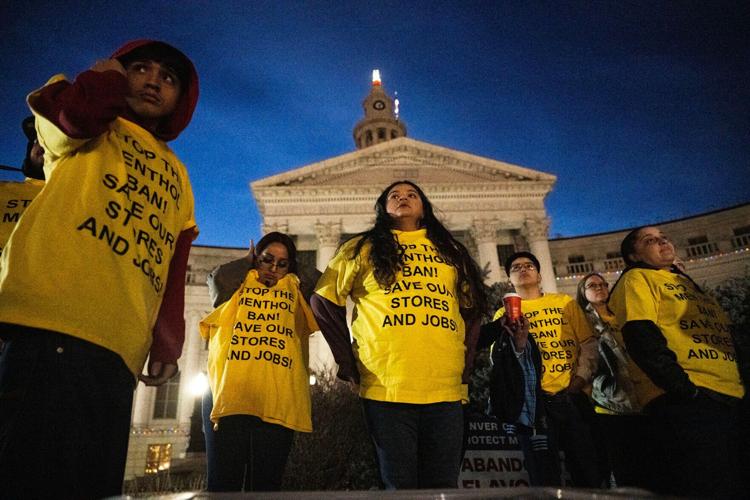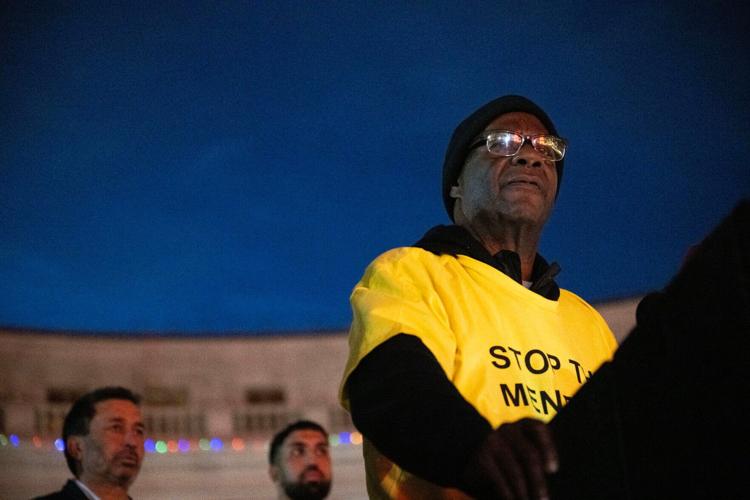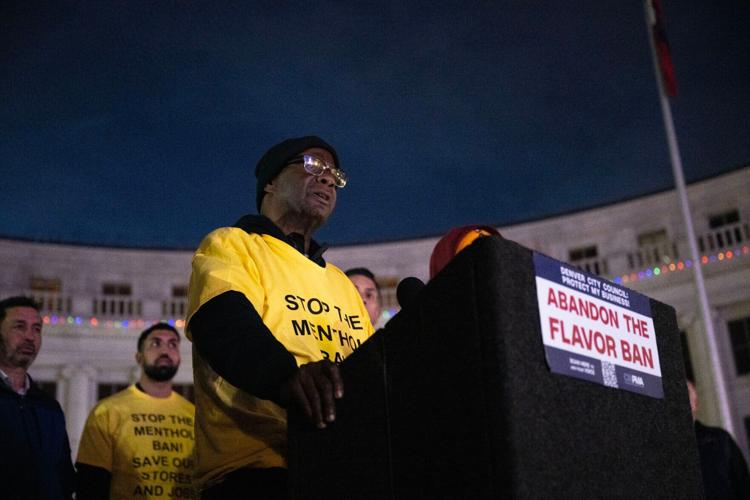Denver bans flavored tobacco products
The Denver City Council on Monday night decided to outlaw the sale of flavored tobacco products within the city and county.
The ban, which passed on a vote of 11 to 1, makes it illegal for any retail tobacco store to “sell, offer for sale, give, barter, deliver or furnish any flavored tobacco product or samples of such products.”
The measure now heads to Mayor Mike Johnston’s office. The mayor has indicated he would back it.
“We’re committed to protecting youth health through common sense measures, and Mayor Johnston would be in support of this initiative should Council pass it,” said Jordan Fuja, a spokesperson for the mayor’s office.
City documents said the economic impact of flavored tobacco products in Colorado amounts to $2.2 billion in annual healthcare costs, $4.4 billion in smoking-caused productivity losses and $415 million in estimated Medicaid — a $772 per household tax burden.
“Members of the Denver City Council took decisive action to protect Denver’s kids and our entire community from the harms of flavored tobacco. Bill sponsors Serena Gonzales-Gutierrez, Shontel Lewis and Darrell Watson showed incredible leadership in the face of relentless pressure from the tobacco industry trying to protect its profits at all costs,” said Jodi Radke, Rocky Mountain/Great Plains regional director for the Campaign for Tobacco-Free Kids. “This vote will help keep thousands of Denver kids from ever picking up a tobacco product and help decrease the health inequities in our communities.”
Officials estimated that the ban will affect approximately 550 retailers in Denver that sell flavored tobacco products.
“I wished no one vaped,” said District 2 Councilmember Kevin Flynn, who was the lone dissenting vote. “But I acknowledge the right of adults age 21 and over to freely choose and to buy and to use a legal product.”
Meanwhile, District 10 Councilmember Chris Hinds said the ban isn’t about choice but about addiction.
In a statement after the vote, Councilmember Darrell Watson argued that the ban would “save lives from intentionally addictive and dangerous products.”
“As elected leaders, we carry the stories of countless families in our community – stories of loss, addiction, and heartbreak caused by flavored tobacco products,” he said. “Tonight, my colleagues and I on the Denver City Council said enough is enough.”
He added: “For decades, Big Tobacco has deliberately preyed on young people and marginalized communities, ensuring a new generation becomes dependent on their products. Our ordinance focuses on accountability where it belongs — on the corporations and retailers profiting from addiction — not on young people. By ending the sale of flavored tobacco, we will prevent addiction, reduce Denver’s healthcare costs, and most importantly, save lives.”
Shop owners say the ban could force them to close and move outside of Denver.
Prior to the vote, the Colorado Wyoming Petroleum Marketers Association and the Convenience Store Association held a press conference on the steps of the Denver City and County Building, calling for councilmembers to reconsider and suggesting that the overly broad flavor ban threatens small businesses, will cost jobs, and increase crime in Denver neighborhoods.
Several former law enforcement officials told councilmembers the ban will drive illegal sales through black markets and smash and grab crimes in vape shops and convenience stores outside Denver, as well as feed organized crime activity.
“Banning it (flavored tobacco products) doesn’t eliminate the underlying issues,” said Augustine Lugo, a private security professional and former ATF agent. “Instead, it creates new challenges. First, the demand remains, even if flavored tobacco is banned. The intense demand for this product means people will still find ways to access them, whether through nearby cities, online platforms are black markets.”
Zachary Shadi-Kingsley, who owns three convenience stores that sell flavored tobacco products, asked councilmembers postpone the vote and instead engage in further conversation.
“But if you vote yes tonight, you’re telling everyone of the 536 retail tobacco stores in this district or in this county, and every single person in your constituencies that use these products instead of smoking or chewing tobacco that we just don’t care. We don’t care about your opinion. We don’t care about your data, we don’t care about your business,” he said.
Phil Guerin, president of the Rocky Mountain Smoke-Free Alliance Board of Directors and owner of Myxed Up vape stores, said the city stands to lose more than $13 million in tax revenue as a result of the ban.
Denver will join the ranks of Aspen, Boulder, Carbondale, Edgewater, Glenwood Springs, Golden, and Snowmass Village, all of which have adopted restrictions or bans on flavored tobacco products.
The law will not take effect for 90 days to permit the Department of Public Health and Environment to educate businesses and encourage voluntary compliance.






